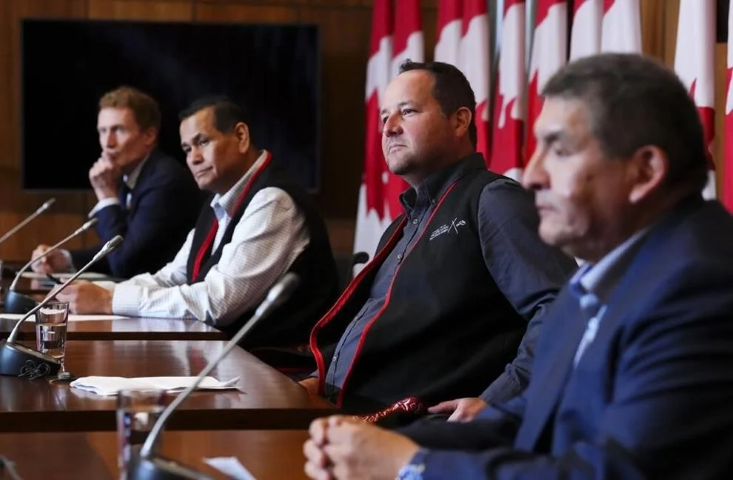
Three Innu communities in Quebec are acusing the provincial government of acting in bad faith a year after the deadline passed to conclude the Petapan Treaty, which has been under negotiation for more than 40 years. THE CANADIAN PRESS/Sean Kilpatrick
Three Innu communities in Quebec are expressing frustration with the provincial government, alleging bad faith in negotiations over the long-awaited Petapan Treaty. Essipit, Pekuakamiulnuatsh, and Nutashkuan chiefs claim that Quebec failed to meet the March 31, 2023 deadline to finalize the treaty, which has been under negotiation for over four decades.
According to the chiefs, instead of fulfilling its commitment to conclude the treaty by the specified deadline, Quebec imposed a new deadline and requested additional information. This move has led the Innu leaders to assert that Quebec has breached its promises, prompting them to consider legal action. Representing approximately 12,000 people in the North Shore and Saguenay-Lac-St-Jean regions, the chiefs are demanding a meeting with Premier François Legault to address the matter.
In their statement released on Monday, the chiefs emphasized their cooperation in responding promptly to Quebec's new demands. However, they underscored the importance of respecting the limits of their goodwill, expressing frustration with what they perceive as an abuse of trust in the negotiation process.
The Petapan Treaty holds significant importance for the Innu First Nations as it aims to exempt the three communities from the federal Indian Act while recognizing their right to self-determination and ancestral rights. Although the Innu nations reached an agreement with the federal government before the March 2023 deadline, discussions with Quebec remain ongoing.
Responding to the allegations, Ewan Sauves, a spokesman for Premier Legault, acknowledged the complexity of the Petapan Treaty project and reiterated the government's commitment to reaching an agreement with the Innu groups. While Sauves declined to delve into specifics, he emphasized that the government's negotiation teams are diligently working towards a resolution.
The Petapan Treaty negotiations have been protracted and intricate, reflecting the complexities inherent in addressing Indigenous rights and self-governance within the Canadian legal framework. For the Innu communities, the treaty represents a significant step towards greater autonomy and recognition of their historical and cultural heritage.
However, the recent dispute with the Quebec government underscores the challenges faced by Indigenous communities in securing meaningful agreements that uphold their rights and address historical injustices. The accusations of bad faith in negotiations highlight the need for greater transparency, accountability, and mutual respect in the pursuit of reconciliation and meaningful partnerships between Indigenous peoples and government authorities.
As discussions continue between the Innu communities and the Quebec government, the outcome of the Petapan Treaty negotiations will have far-reaching implications for Indigenous rights, governance, and relations with the provincial and federal authorities. The resolution of this dispute will test the commitment of all parties involved to uphold the principles of fairness, respect, and justice in addressing the longstanding grievances of Indigenous peoples in Canada.















